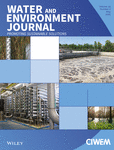Call for Papers
Human water interactions and flood resilience
Submission deadline: Thursday, 30 April 2026
Modern flood risk management must account for the intricate feedback loops between human land use, hydrological conditions, and climate change across both spatial and temporal scales. While contemporary flood research often focuses on short-term risks and “fast variables” of change (e.g., policy shifts, economic crises), social, financial, and cultural adaptations to flooding have long evolved in significant river basins worldwide through complex interactions between humans and their water environments. However, over-reliance on short-term technological solutions can inadvertently increase long-term vulnerability to floods, erode cultural practices related to water seasonality, and undermine socioeconomic resilience. When traditional knowledge is lost, so are community-based strategies that promote living in harmony with water—such as the design of flood-adaptive spaces. Unfortunately, these time-tested approaches are notably absent in the literature and are often overlooked by modern planners and policymakers. With climate change expected to intensify extreme weather events, understanding how humans coped with, adapted to, and even thrived in flood-prone environments is critical for informing contemporary flood resilience strategies.
This Special Issue aims to bridge the gap between flood resilience’s historical, socio-cultural, and ecological dimensions and contemporary flood risk management. Focusing on human-water interactions emphasizes the long-term co-evolution of societies and their water environments. These interactions encompass many practices, from traditional water governance systems to architectural and land-use strategies designed to accommodate, rather than resist, periodic flooding. What lessons can be drawn from ancient Nile, Mekong, and Yellow River basin water management systems? How can such insights be incorporated into modern flood resilience frameworks, particularly in the face of accelerating climate change? We welcome case studies and contributions across disciplines, including hydrology, anthropology, history, geography, environmental and socio-cultural, and urban planning examples. The goal is to provide an international readership with a broad and interdisciplinary exploration of how human-water interactions can inform sustainable flood resilience strategies today.
Topics for this call for papers include but are not restricted to:
- Feedback, processes or mechanisms of human-flood interactions
- Historical and contemporary flood adaptations under the context of climate change
- The role of Indigenous or community-based strategies in flood management
- Impacts from social, cultural or political factors on flood resilience
- Integrating traditional knowledge or modern techniques into flood management
Guest Editors:
Shuai Wang
Beijing Normal University
China
Shuang Song
Max Planck Institute of Geoanthropology
Germany
Bo Qu
Yellow River Institute of Hydraulic Research
China
Shinichiro Nakamura
Nagoya University
Japan
Liang Emlyn Yang
Ludwig-Maximilians-Universität München
Germany
Keywords: Flood risk; Resilience; Socio-hydrology; Adaptation; Management;
Submission Guidelines/Instructions
Please refer to the Author Guidelines to prepare your manuscript. When submitting your manuscript, please answer the question: "Is this submission for a special issue?" by selecting the special issue title from the drop-down list.





